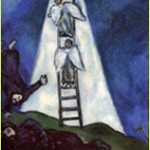Mrs. Appel's Reading & Movie List
- Dr. Seuss, Oh, The Places You'll Go
- For an interesting dialog about contemporary (or at least, 1990s) Orthodoxy: Haym Soloveitchik, "Rupture and Recontstruction: The Transformation of Contemporary Orthodoxy", in Tradition 28:4 (1994) -- along with Dr. Isaac Chavel's response and Dr. Soloveitchik's response to Dr. Chavel, the latter two published in Torah U-Madda, January 1, 1997
- Heschel, The Sabbath
- The poetry of Leah Goldberg
- Chaim Potok, The Chosen
- Thornton Wilder, Our Town
- Harper Lee, To Kill a Mockingbird
- David Ben-Gurion's speech declaring Israel's idependence, recording:http://www.youtube.com/watch?v=EJObtrw_E6g&feature=related
- Schindler's List
- Life is Beautiful
Mrs. Kraft's Reading List
For thinking about Judaism on a deeper level and to be inspired at the same time:
1. Living Inspired by Rabbi Akiva Tatz
2. World Mask by Rabbi Akiva Tatz
3. The Thinking Jewish Teenager's Guide to Life by Rabbi Akiva Tatz
For the very intellectually sophisticated reader dealing with issues of faith in G-d:
1. Forgive Us, Father-in-Law, for We Know Not What to Think: Letter to a Philosophical Dropout from Orthodoxy by Rabbi Shalom Carmy
2. Faith and Doubt by Rabbi Norman Lamm
On why bad things happen to good people:
Kol Dodi Dofek (Hebrew) or Fate and Destiny (English translation) by Rav Solovetichik
Just good and enjoyable (and secular) reading on having the correct perspective and being productive, etc.:
The 7 Habits of Highly Effective Teens by Sean Covey
For Inspiration:
 Just One Word. Amen by Esther Stern
Just One Word. Amen by Esther Stern
To increase your kavanah in tefila:
Pathway to Prayer by Rabbi Mayer Birnbaum
The Art of Jewish Prayer by Rabbi Yitzchok Kirzner
Rav Schwab on Prayer by Rabbi Shimon Schwab
1. Living Inspired by Rabbi Akiva Tatz
2. World Mask by Rabbi Akiva Tatz
3. The Thinking Jewish Teenager's Guide to Life by Rabbi Akiva Tatz
For the very intellectually sophisticated reader dealing with issues of faith in G-d:
1. Forgive Us, Father-in-Law, for We Know Not What to Think: Letter to a Philosophical Dropout from Orthodoxy by Rabbi Shalom Carmy
2. Faith and Doubt by Rabbi Norman Lamm
On why bad things happen to good people:
Kol Dodi Dofek (Hebrew) or Fate and Destiny (English translation) by Rav Solovetichik
Just good and enjoyable (and secular) reading on having the correct perspective and being productive, etc.:
The 7 Habits of Highly Effective Teens by Sean Covey
For Inspiration:
To increase your kavanah in tefila:
Pathway to Prayer by Rabbi Mayer Birnbaum
The Art of Jewish Prayer by Rabbi Yitzchok Kirzner
Rav Schwab on Prayer by Rabbi Shimon Schwab










